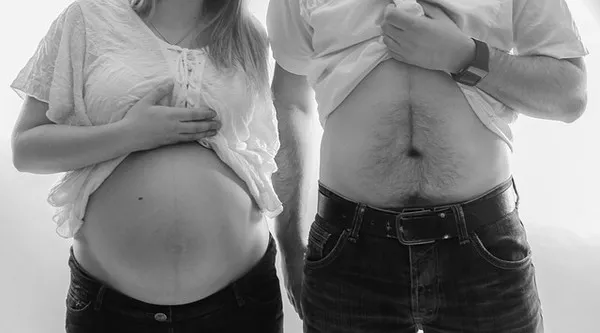The journey to conception involves intricate processes influenced by various factors, including the timing of intercourse in relation to a woman’s menstrual cycle. For couples aspiring to start or expand their families, the question of how many days after intercourse pregnancy can occur is a common one. In this article, we will explore the complexities of conception, the fertile window, and factors that contribute to successful pregnancy.
The Menstrual Cycle and Ovulation
Before delving into the timing of pregnancy, it’s essential to grasp the fundamentals of the menstrual cycle. The menstrual cycle is the monthly hormonal cycle experienced by women, typically lasting about 28 days, although variations are common. The cycle is divided into several phases, with ovulation as a key event.
Menstruation (Days 1-5):
The menstrual cycle begins with menstruation, the shedding of the uterine lining. This phase lasts for approximately five days.
Follicular Phase (Days 6-14):
Following menstruation, the follicular phase commences. During this phase, hormone levels stimulate the development of follicles in the ovaries, each containing an egg.
Ovulation (Day 14):
Ovulation, the release of a mature egg from the ovary, typically occurs around the middle of the menstrual cycle, approximately on day 14 in a 28-day cycle. Ovulation is a crucial window for conception.
Luteal Phase (Days 15-28):
After ovulation, the luteal phase begins. If the released egg is not fertilized, hormone levels shift, and the uterine lining prepares for shedding in the next menstrual cycle.
Fertile Window and Conception
The fertile window is the timeframe during which a woman is most likely to conceive. It encompasses the days leading up to and including ovulation. While the egg survives for about 24 hours after ovulation, sperm can survive in the female reproductive tract for up to five days. This extended window contributes to the overall fertile period.
Timing of Intercourse:
To maximize the chances of conception, couples are advised to engage in regular intercourse during the fertile window. Sperm availability during the days leading up to ovulation increases the likelihood of encountering the egg when it is released.
Ovulation Prediction:
Various methods can help predict ovulation, such as tracking menstrual cycles, monitoring basal body temperature, and using ovulation predictor kits. These tools assist couples in identifying the optimal time for conception.
How Many Days After Intercourse Can Pregnancy Occur?
The viability of sperm and the survival of the egg collectively determine the window during which pregnancy can occur. Understanding the timeline is crucial for couples trying to conceive.
Sperm Viability:
Sperm can remain viable in the female reproductive tract for up to five days. This means that if intercourse occurs in the days leading up to ovulation, sperm may be present and ready to fertilize the egg when it is released.
Egg Viability:
The egg, once released during ovulation, has a lifespan of approximately 12 to 24 hours. For conception to occur, fertilization must take place within this limited timeframe.
Optimal Timing:
Given the survival periods of both sperm and the egg, the optimal timing for conception is intercourse in the days leading up to ovulation and on the day of ovulation itself. This timeframe provides the best conditions for sperm to encounter the released egg.
Potential Conception Window:
Considering the survival times of sperm and the egg, the potential window for conception extends from several days before ovulation to the day of ovulation. This can range from about five days before ovulation to one day after.
Variability:
It’s important to note that individual variability exists, and cycles can differ. Factors such as stress, illness, or changes in lifestyle can impact the regularity of menstrual cycles and the timing of ovulation.
Factors Affecting Conception
While understanding the fertile window is crucial, conception can be influenced by various factors beyond timing:
Sperm Health:
The health and viability of sperm play a significant role. Factors such as sperm count, motility, and morphology can impact fertility.
Egg Quality:
The quality of the released egg is essential for successful fertilization. Advanced maternal age can affect egg quality.
Conditions affecting reproductive health, such as polycystic ovary syndrome (PCOS) or endometriosis, can impact conception.
Overall Health:
The general health of both partners, including lifestyle factors such as diet, exercise, and substance use, can influence fertility.
Underlying Conditions:
Certain medical conditions, hormonal imbalances, or genetic factors may contribute to fertility challenges.
Optimizing Fertility and Seeking Guidance
Couples aspiring to conceive can take proactive steps to optimize fertility:
Healthy Lifestyle:
Maintaining a healthy lifestyle, including a balanced diet, regular exercise, and adequate sleep, contributes to overall reproductive health.
Preconception Care:
Seeking preconception care and consultations with healthcare professionals can address potential concerns and provide guidance on optimizing fertility.
Tracking Menstrual Cycles:
Consistent tracking of menstrual cycles and using tools such as ovulation predictor kits can assist in identifying the fertile window.
Patience and Emotional Well-being:
The journey to conception can be emotional, and couples are encouraged to prioritize emotional well-being, patience, and open communication.
Consulting a Specialist:
If conception does not occur after several months of trying, seeking guidance from a fertility specialist can help identify potential factors and explore appropriate interventions.
Conclusion
Understanding the intricacies of conception, the fertile window, and the factors influencing pregnancy after intercourse is essential for couples on the path to parenthood. While the window for potential conception spans several days, individual variability, health factors, and lifestyle choices can impact the journey. By staying informed, maintaining a healthy lifestyle, and seeking professional guidance when needed, couples can navigate the complexities of fertility and increase their chances of successful conception.


